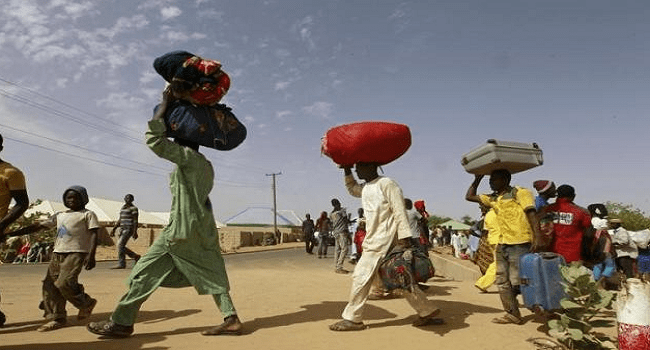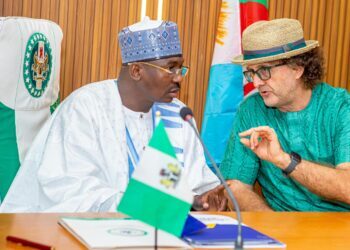The Yobe State government is set to become the first in Nigeria, to domesticate the National Policy on Internally Displaced Persons (IDPs)after twelve years of existence.
Governor Mai Buni represented by his Secretary to the State Government, Baba Malam-Wali at a Special Session with Development Partners, revealed that the state will allocate 5 per cent of its 2025, 2026 and 2027 total budget, to support durable solutions for IDPs in the state.
‘Yobe is the first state in the country to take strategic steps to address the complex challenges of displacement in line and response to the United Nations Secretary-General’s agenda and solution to displacement.
“I am delighted to say Yobe state in the last 5 years successfully constructed, rehabilitated and established new structures, provided healthcare as well as constructed roads, provided electricity and water to make life more meaningful for the returning host communities”
“I am delighted to inform you, that Yobe state will commit 5 per cent of its 2025, 2026 and 2027 total budget for the durable solution of Internally Displaced Persons in the state” he said.
Earlier in his welcome remarks, the Project Coordinator, Solutions for the Internally Displaced and Host Communities, Dauda Suleiman had explained three key objectives that were to be discussed.
“The objectives are to enable the state to have clear strategies for the achievement of durable solutions for the displaced population through the solution pathways, afford internally displaced population to have social and economic opportunities and for the policy to ensure the state complies with the national, regional and international legal instrument to provide a comprehensive framework for the protection of IDPs,” he said.
The Yobe state government and the donour partners under its project solutions for the Internally Displaced and Host Communities (SOLID), met with representatives of the World Bank, United Nations Development Programme, International Organisation for Migration (IOM), United Nations High Commissioner for Refugees (UNHCR), among other partners to provide a durable solution for the IDPs.
The partners pledged to work with the Yobe government and the host communities, to ensure they return to their ancestral homes in a dignified manner.
It would be recalled, that the Nigerian government in 2012 came up with a National Policy on IDPs that makes provision for the protection of specific rights from displacement, protection and assistance especially for women and children who are the most affected.











